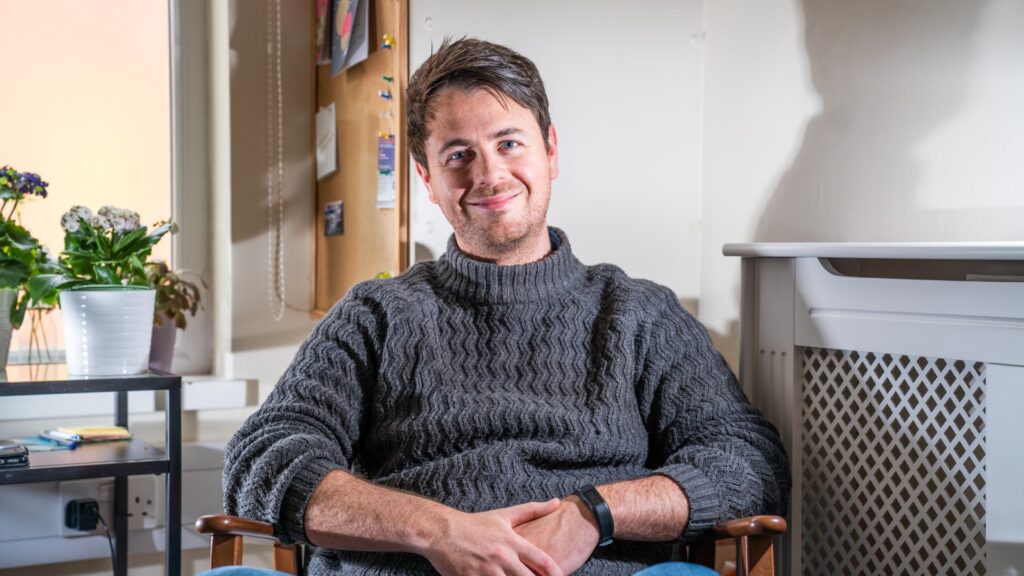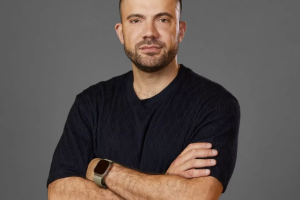
Joshua Fletcher is a well-known psychotherapist and best-selling author based in Manchester, United Kingdom. His specialities include stress management and anxiety disorders, whereby he provides his patients and followers with useful tips and strategies to overcome their anxiety problems. He has written several best-selling books, including “Anxiety: Panicking about Panic”, in which he explores these anxiety management techniques for individuals, large groups and even businesses. Joshua also hosts a podcast called “The Panic Pod”, in which he discusses psychotherapy concepts with guests and followers.
Joshua was able to answer some questions we had about his early career and written works.
His Joshua, thanks for joining us. What motivated you to become a psychotherapist?
I wanted to become a psychotherapist in order to help people who find themseilves in a similar situation to myself at one time. I was once diagnosed with an anxiety disorder and it was a very lonely place to be in. It took a long time to overcome what I was going through, but I did and I wanted to enable and empower others to have that same feeling. I’m also really interested in psychoeducation and humanistic psychology.
Where did you study and earn your qualifications? What did you find most challenging about your studies?
I studied to be a psychotherapist at Keele University by undertaking my Masters in Counselling Psychology. From there I then studied a PGCert in Cognitive Behavioural Therapy at Salford University. The most challenging part was the personal development side of the course; it was also mandatory for you to self-explore in order to get to a place where you can work with clients. This was a fascinating protest but emotionally challenging at the same time. The writing was also a pain because I can get easily distracted!

For individuals suffering from anxiety and high levels of stress, what are your top three tips for helping them overcome their concerns?
My three tips would be:
- Notice that you’re anxious and label it as your threat response, either out loud or in your mind.
- Remind yourself that the scary feelings and sensations are caused by adrenaline and cortisol. This includes feeling like something bad is about to happen and strange bodily sensations and symptoms like a pounding heart and derealisation.
- Notice and observe the anxious mind trying to help you by ‘working out’ why you feel this way. It’s ok to ignore this as almost all the conclusions are catastrophic and false. Ignore it and do not avoid doing what you’d usually do.
When did you decide to write “Anxiety: Panicking about Panic” and what was your motivation?
I decided to write Panicking about Panic after confidently stating to myself that “I think I’ve overcome this.” I wanted a simple self-help book to help others who find themselves in that scary place of repetative, looping panic. I was motivated by people falling for the stigma of anxiety and wanted to normalise it for them, to tell them it was ok to be anxious and there’s hope. When I first found hope during the condition, this is a feeling I wish I could bottle up and share with everyone.
Did you find the writing process challenging in any way, and if so, what made it difficult?
Yeah I wouldn’t regard myself as a writer so the challenge was to try and get it down on paper in a professional way. I remember overthinking everything until one day I decided to just be me and write it in my own voice – something I’m so glad I did because some of the best feedback I receive is that the readers feel like they are being spoken to directly which is reassuring.
You’ve also written another book called “Anxiety: Practical about Panic”. What’s different about this book compared to your other written works?
I wrote practical about panic after obtaining my masters degree and working in my private practice for 4 years. I wanted to convey what I had learned since training to be a therapist and working with many others who have experienced anxiety and panic. This book has a bit more professional knowledge and is a bit more refined, but it still doesn’t lose my ‘voice’ that I use in the first book. It was fun to record the audio book for this one, too.
What is your favourite part about being a clinical psychotherapist?
Observing positive therapeutic change in my clients as a result of their hard work. I also love seeing the smiles of relief in them as they are made to feel normal, accepted and empowered. It’s honestly a privilege to hear what my clients bring and I never take for granted what they share with me; I understand that for a lot of people trust can be a hard thing to grant.
In your opinion, has the COVID-19 had a significant impact on the incidence of stress and anxiety in our communities?
Yes definitely. The pandemic has affected all forms of anxiety: there’s the obvious forms such as health anxiety and OCD related to cleanliness, but it has also affected people in other ways too. My colleagues and I have seen a huge increase in agoraphobia related enquiries, as well as a spike in people experiencing panic attacks. I think the overall anxiety level of the world has gone up a few notches, which has enabled the development of anxiety-related conditions.
Thank you Joshua for your time!
You can follow up with Joshua Fletcher at www.thepanicpod.com or IG @anxietyjosh
John Davis is a seasoned health journalist with expertise in public health and medical research. Holding a degree in health sciences, John excels in making complex health topics understandable and engaging for his readers. His articles, featured in top health publications, cover everything from cutting-edge treatments to public health policies. Outside of journalism, John is an advocate for health education and frequently speaks at community events.





